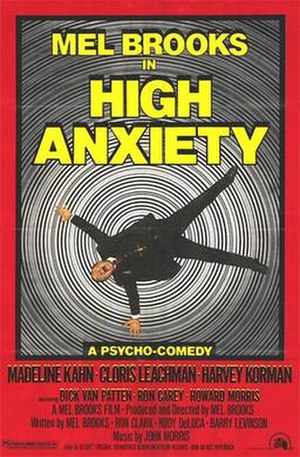And yet most of us simply sit back and shake our heads, and wait for someone to take up the crusade.
I am forced to ask myself this question: Who will exhibit this leadership if not you? What, Don, are you waiting for—someone else to lead? (Well, yeah, frankly...)
 In his book A Failure of Nerve, Edwin Friedman posits that we are living in what he terms "a society in regression"; that is, a society where the breakdown in relationships engenders chronic anxiety. Such a society is earmarked, Friedman says, "by increasing polarization, rigidity of belief, clouded vision, and an inability to change direction." He compares the scourge of political correctness to the Inquisition of medieval Europe, declaring both to be the result of a culture-wide regressive emotional state [p. 52]. This anxiety is characterized by five characteristics of chronically anxious families: intense reactivity of members to events and each other; herding, i.e., placing emphasis on togetherness above individuation and causing everyone to adapt to the least mature members; blame displacement, focusing on being a victim rather than taking personal responsibility for their own destiny and being; a low threshold for pain that breeds a quick fix mentality; and the lack of well-differentiated leadership, "which both stems from and contributes to the first four" [pp. 53-54].
In his book A Failure of Nerve, Edwin Friedman posits that we are living in what he terms "a society in regression"; that is, a society where the breakdown in relationships engenders chronic anxiety. Such a society is earmarked, Friedman says, "by increasing polarization, rigidity of belief, clouded vision, and an inability to change direction." He compares the scourge of political correctness to the Inquisition of medieval Europe, declaring both to be the result of a culture-wide regressive emotional state [p. 52]. This anxiety is characterized by five characteristics of chronically anxious families: intense reactivity of members to events and each other; herding, i.e., placing emphasis on togetherness above individuation and causing everyone to adapt to the least mature members; blame displacement, focusing on being a victim rather than taking personal responsibility for their own destiny and being; a low threshold for pain that breeds a quick fix mentality; and the lack of well-differentiated leadership, "which both stems from and contributes to the first four" [pp. 53-54].The solution to the anxiety, Friedman declares, is real leadership. In order to break through the regression, real leaders must lead. This means that they must self-differentiate, that is, be sufficiently aware of and in touch with their own personhood that they are not drawn into the anxiety of those around them, and be willing to allow others the consequences of their own actions. When a self-differentiated leader comes to the fore, says Friedman, the anxiety of the system around him begins to lessen.

If we hope to see society transformed by the Gospel, we must see ourselves transformed by the Gospel. If we long to stop the train speeding toward Gehenna, then we must stand firm in our faith and
lead. We must not allow ourselves to be herded into a 'lowest common denominator" society, but rather accept responsibility for our own choices and recognize that we are called to be a non-anxious presence in the world around us.

http://www.aish.com/jw/s/48892792.html
ReplyDeleteI want to see a blogged response to this.
Here you go... http://2floorwest.blogspot.com/2011/03/why-not.html
ReplyDeleteThanks Don for an excellent, concise articulation of Friedman's principal observations AND for provoking us to lean into our own self-leadership: the central priority for every leader.
ReplyDeleteGod bless you!